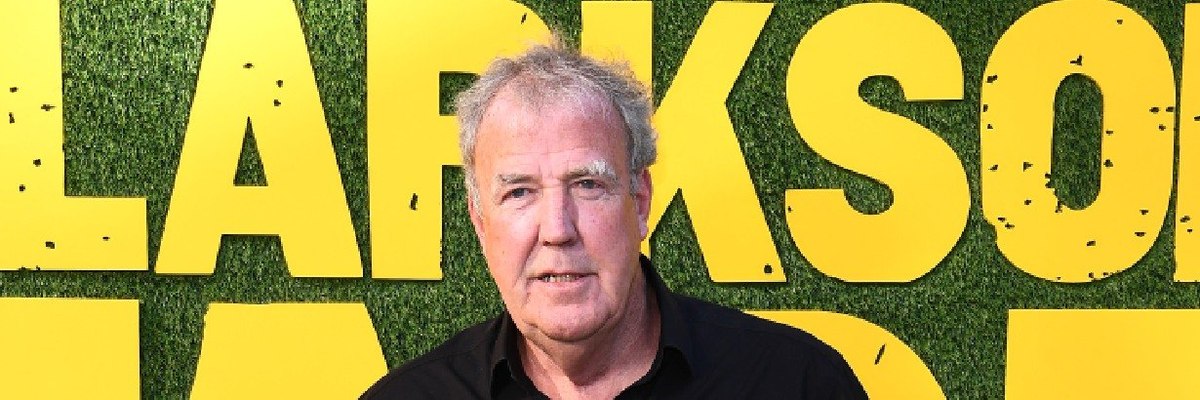This may be the first time one of these debates has been prompted by a popular television programme. Or at least a programme presented by Jeremy Clarkson. In fact I had never watched a Clarkson programme until this week when I sat through several episodes of his Amazon Prime series Jeremy Clarkson’s Farm. I had expected knockabout silliness and there was plenty of that. But there was a serious intent as well. Clarkson, it turns out, is seriously worried about the damage we are causing to our ecosystem and believes farmers bear a large responsibility for putting it right. Do you share his concerns and, if so, what do we we expect farmers to do about it?
For three year Jeremy Clarkson has been managing the thousand-acre farm he bought in the Cotswolds. Trying to manage it would be a more accurate description. The films he has made for Amazon Prime – Jeremy Clarkson’s Farm – chronicle that experience. They have been hugely successful – which is more than can be said of his farm management. He has renamed the farm Diddly Squat because, he says, that’s how much money it makes.
That could, of course, be attributed to his own lack of experience of farming - not to mention his attitude to spending. When he realised, for instance, that he needed a tractor he did not do what a ‘normal’ farmer would do and buy a decent second-hand workhorse appropriate to the job. He bought a spanking new Lamborghini. It cost approximately what I spent buying my own farm in Wales forty years ago. The whole farm. And that included the sixty cows on it.
It didn’t help that Clarkson couldn’t drive the Lamborghini. There were so many different controls he didn’t even know what half of them were meant to do. In his own words he “managed to drive it into six gates, a hedge, a telegraph pole, another tractor and a shipping container. I think I’m right in saying I have not completed a single job without at least one crash.” And that was pretty typical of all his other farming activities.
He bought a flock of (very expensive) sheep and instead of buying a sheepdog to control them he bought a very racy drone which actually barked. It worked well for a day or two. But sheep are not always as stupid as they appear and they realised that if they disobeyed this barking creature it could not actually nip their heels. So they ignored it. And when they wanted to get into a field from which they had been barred they simply leaped over the dry stone wall, wrecking much of the wall in the process.
The programmes are, as they were meant to be, very funny. I leave to your imagination the scene where he decides to measure the size of the testicles on the two rams he had just acquired. But they got serious when Clarkson stopped playing it for laughs.
One of his projects is re-wilding 300 acres of his land. He delivered a powerful little speech to camera telling the audience that the world is in danger of destroying our ecosystem and, thus, all life on Earth. He was passionate, angry, and convincing. One could see Sir David Attenborough nodding in approval. Or even Greta Thunberg. And this from a man who made his fame and fortune driving gas-guzzling monsters on Top Gear and ridiculing all those spoilsport environmentalists who said he shouldn’t.
So Jeremy Clarkson has seen the light and is trying to do something about it. Or is he?
His critics will say that, like so many farmers, he talks a good talk but when it comes to his farming methods he is less convincing. They will point out, for instance, for instance, that one of his main crops is oilseed rape. Every environmentalist in the land will tell you that this is one of the most destructive crops a farmer can grow. The profit margins can be very high, which is why so many farmers began growing it in this country a few decades ago, but it needs regular spraying with chemicals that are massively harmful to insect and bird life. In so many ways the environmental cost is horrendous.
They make the point that healthy soil is vital to human existence on this planet There are more micro-organisms in a spoonful of it than there are people on earth. And soil plays a crucial role in capturing and storing carbon. If we destroy that life we not only lose our ability to grow food, they say, but we lose the battle against climate change. After sixty years of intensive agriculture we are well on the way to doing just that.
Clarkson’s defenders point out that he has nailed his environmental colours to the mast by publicly supporting the growing move by farmers to what is called ‘regenerative’ agriculture. The “Groundswell’ regenerative farming conference last week attracted supporters from around the country. It has four core principles:
Minimising soil disturbance The living organisms in soil create fertility, but disturbing them through tillage or by using chemicals destroys the soil structure that acts as their home.
Keeping the soil covered Nature always works to fill a vacuum, and bare soil is no different. Keeping it covered protects it from wind and water erosion, while preventing moisture evaporation and weed seeds germinating. It’s vital to keep soil covered by maintaining living roots in the soil as much as possible through the year – typically by growing cover crops in the gaps between cash crops. That also helps retain nutrients and food supply for the micro-organisms in the soil.
Maximising plant or crop diversity The theory is that pests, diseases and poor nutrient cycling in crops are due to the lack of diversity in our farming system. Increasing the range of crops and animals in the system decreases pest and disease pressure while supporting biodiversity and improving soil health.
Integrating livestock Livestock grazing of cover or cash crops on arable land not only provides a natural source of organic matter, but also encourages new plant growth, which stimulates the plants to pump more carbon.
Some say regenerative farming does not go far enough. Truly organic farming, which bans all synthetic chemical use, is the only answer if we are to save the soil and improve our nutritional health. Others point out that it might be fine in principle but it results in far smaller crop yields. It would push up the price of food to levels that would be simply unimaginable. And anyway, in the forty years since organic food started appearing in our supermarkets it is still seen as a minority taste. Most people say they simply can’t afford it.
What’s your view? Do you worry that we are destroying the ecosystem? If so, are farmer to blame in large part and what should we do about it? Are you prepared to pay more for organic food? Are you a Clarkson fan and if you were not has his TV series won you over?
Let us know what you think.









